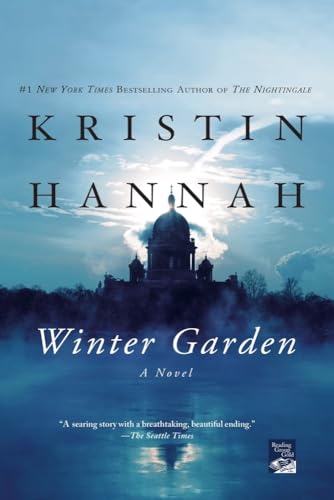Meredith is a tightly wound, rule following, control freak who works hard to be the mother her own mother never was but who rejects her husband's overtures time after time. Nina is an award winning war zone photographer who is known for keeping an emotional distance from her subjects, allowing her to capture the truth of their lives impartially, but her inability to open herself up is causing her problems with her sexy occasional boyfriend. Both Meredith and Nina learned their emotional frigidity at the knee of their mother, a Russian woman who never mothered them, showing them only disapproval and detachment. Luckily they had a loving and giving father who held the family together, even as he enabled their mother's emotional distance. When he suffers a massive heart attack and then slowly fades away, he makes the girls promise that they will stand by their mother and listen as she tells them the end to the incomplete fairy tale she used to tell them in childhood, the one that will explain so much they've never understood, that will explain the trauma that shaped all of their lives and especially their mother's. As Anya tells the tale, it slowly becomes clear to the girls that she is telling them the story of her own life before them, a story devastated by the Siege of Leningrad.
The narrative can be split pretty cleanly into two halves here: before the telling of the tale and during/after. The latter is certainly more interesting in terms of plot since Meredith and Nina are not characters with whom the reader will find it easy to empathize. They have clearly been badly damaged by their mother's remoteness but they seem, in many ways in their own lives, to be emulating her rather than the father they both claim to have adored. They come across as incredibly selfish. The second part does pick up although the conceit of the fairy tale isn't altogether successful as it ceases to be a fairy tale quite soon into the telling, in addition to the fact that it doesn't actually have all of the elements of traditional fairy tales. There's no magic, no triumph of good over evil, and no moral message or universal truth to it although it does, eventually have a happy ending. Anya, Meredith and Nina's mother, is a character who is hard to know, even as she tells the girls about her life in the Soviet Union. These daughters are ridiculously slow at figuring out the fairy tale is Anya's true life and it begs the question why they were never interested in their mother's origins. That Anya only sees things in black and white and cannot see color, even though there's no physical reason to explain that, is meant to show that the color leached out of her world long before Meredith and Nina were born and to give her a pass on her treatment of her daughters. She shut down emotionally to survive the terrible things that she endured but she never did choose to truly live again, to the detriment of her family. The ending to the story was too coincidental, completely unbelievable and far too easy given the decades of hurt that preceded it.
The writing here was repetitive and pedestrian and the internal musings of the characters were overly long and uninteresting in their repetition. Each time a character comes back onto the page, they are described physically, as if the reader isn't able to keep the (frankly unnecessary) picture of that particular character in mind without help. I am very definitely in the minority in my opinion of this one (in fact, many people adore it) so if you like dysfunctional family stories where secrets eventually come out after a long and drawn out lead up, where a terrible historical event that isn't apparently taught in schools (except mine) is a major plot point, where a lack of family connection is suddenly resolved, and there is boundless hope that it's never to late to forgive and to heal, you might like this one a whole lot more than I did.







I'm glad to hear what you thought of this one, as we're also Russia-mad at my house and I would not enjoy this one. Have you read Benioff's City of Thieves? That's a good one on this topic.
ReplyDelete